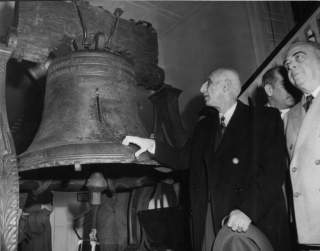Mohammad Mossadegh: An American Parable
Both left and right use the 1953 coup against Iran's prime minister as a morality lesson about American foreign policy. But Mossadegh's complex legacy must be understood on its own terms, not ours.
There’s a deep irony here. Citizens of great powers may see the world through their own navels and seek to govern it through their own interests. Yet the rest of the world sees history from its own perspective, from its own interests. They do not write their own story in the third person. But that is precisely what empire asks them to do. And so there will always be people who want to write the story their own way, to make it something more than a parable for audiences in an alien land. One of those people was Mohammad Mossadegh.
John Allen Gay, an associate managing editor at The National Interest, is coauthor of War with Iran: Political, Military, and Economic Consequences (Rowman and Littlefield, 2013). He tweets at @JohnAllenGay.

